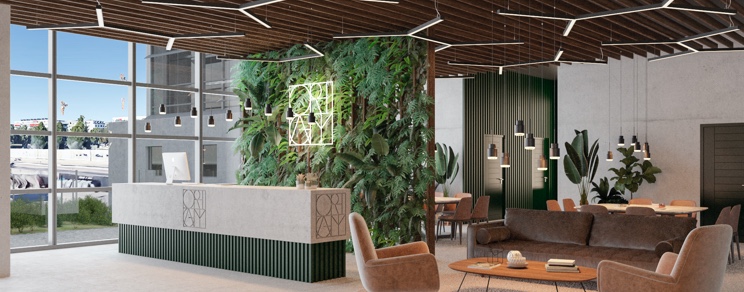
Flexibility at work is in the heart of the millennials’ expectations
Versatile fit-outs, attractive design, integrated amenities, how the milliennials have brought more flexibility to the business world.
Top priority : work environment
What will the companies’ office premises look like ten, twenty or thirty years from now? How will the office spaces be shared? Why do they have to be reinvented? To design tomorrow’s office premises, it is necessary to care about the people who will occupy and already occupy them: the millennials.
Representing a growing proportion of the part of the working people in Europe, this new generation of workers expect a lot from the professional environment, even if it means favouring smaller companies or increasing their travel time home/office, for a better quality of life at work.
More amenities for more comfort
According to a CBRE survey, 83 % of working people consider the design and the fit-out of spaces critical to productivity. Among the most attractive fit-outs and services: restaurant (40 %), rest and recreation spaces (35 %), wellness and relaxation spaces (28 %), coffee corner (27 %) and green areas (27 %).
Divided between they freedom need – entrepreneurship, creation, experimentation – and their desire for some stability, ambivalent to the explosion of new technologies, and tempted by more modernity regarding their relationship to the work time, the millennials bring a renewal to traditional companies, ushering in a new era of flexibility.
Era of flexibility
What are we talking about? An evolution. Key component of the industrial reactivity, flexibility allows a company to adapt to the demand and to the environment evolution. It mobilizes all of the company’s resources, including its staff.
In just a few years, the concept moved in the companies themselves, to become a real tool and an essential part of the proper functioning of the companies.
Under the influence of the millennials, the companies of all sizes offer to their employees more flexibility now: choice regarding working times, working methods (flattened hierarchy, being part of several teams, innovative project management models…) but also regarding their workplace (home office, third places, open spaces, collaborative spaces…).
Reshaped working spaces
Hence the development of new versatile office buildings, in which to work alone or in groups, indoor or outdoor, in a collaborative space or in a partitioned office.
The buildings will need to be adapted to green new expectations (fight against waste, energy management, etc.) and offer more facilities for occupiers to help them balancing their personal and professional life.
This is what will be proposed by Origami, developing, according to the tenants’ needs, a large integrated range of services (restaurant, fitness, etc.), solutions for alternative travel choices (car sharing for example) and new « flex » office premises.



